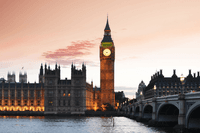
Rediscovering the power of the constituent
According to the UK Parliament website: "The UK public elects Members of Parliament (MPs) to represent their interests and concerns in the House of Commons. MPs consider and can propose new laws as well as raising issues that matter to you in the House". It is incredible we are threatened with another EU Referendum (this time coined as a People's Vote), which would subvert the decision to Leave the EU in the vote on 23rd June 2016 – nearly 3 years ago – argues Joel Casement.
On the same website, it clearly states in unambiguous English, the public, by electing a Member of Parliament, empower them to represent the public's views. This is why MP's have both parliamentary and constituency offices where anyone in the constituency can arrange an appointment to visit their MP and should expect their views to be heard. One would expect if these are views of the majority of constituents, then MP's should propose new laws and bills. This should be simple and effective, but does not seem to be happening.
The issue affecting us today is: where does the power abide? It is difficult to reason why this is an issue and what is the actual issue? Does power abide in constituents empowering MPs, or MPs, having been empowered by voters, taking it as their role to act in what they considered the best course of action in the name of their constituents?
Surely the power should be with the people, and with MPs representing their views. Following the EU Referendum, the problem seems to be one of interpretation. If we have empowered MPs, then it is clear, we must Leave the EU, so a second referendum is not an option. If however, MPs feel they must take decisions which run against the voters' expressed will – because they believe it to be "in our interest" – we would lose out on what the people voted for – to Leave the EU. This is particularly important in a constituency where the majority voted Leave, but which is represented by a Remain MP.
So why do some MPs feel as though they are right in opposing the Referendum vote? The answer is perspective. MPs spend most of their time in the Westminster bubble, rather than their constituency. Therefore, they can have a bias in favour of Westminster, not their constituency. They don't see the daily struggles, hopes and aspirations of people. This makes reminding MPs of the words on Parliament's website crucially important:
"The UK public elects Members of Parliament (MPs) to represent their interests and concerns in the House of Commons."
MPs receive thousands of emails every day, filled with the all the noise and rumours of Westminster as well as those from their Constituency. They must also tackle the modern sound boom of social media. With all this noise boom it seems to be more difficult for them to see the will of their constituents over their own personal views. Defeating this can be done by writing letters or arranging a meeting to reach out to your own MP in a way which defies the modern sound boom, rendering them deaf – and more often than not – dumb as a result. However, Get Britain Out frequently hears from supporters that MPs ignore these contacts – especially when they have large majorities – and once elected seem to treat the promises they made in election campaigns, with impunity.
It is up to constituents to continue to inform this judgement and not let the Westminster bubble become the compass by which their MP is guided, and also consider communications via their local party associations. We must remind MPs, they are elected to this purpose. After all, it is British taxpayers who pay their salaries and who give them, their families and staff a livelihood. We, the people, are their employer and we have the power to hire and fire them at the next General Election. As their employer – and their source of earnings – we have every right to expect they act in our interests and to our expressed will – and to communicate with us apart from prior to General Elections when they want our votes. To not do so, seems ludicrous. If it were any other job, going against your boss would result in being fired, so why do politicians think they are an exception.
Additionally, parliamentarians represent their Party, and are charged with upholding their Party's manifesto. Labour has said it would "put the national interest first. The Conservative Manifesto clearly states: "No Deal is better than a bad deal". This has been a Government creed and an iconic statement of the Brexit process, alongside the zinger: Brexit means Brexit. Without wanting to sound clichéd, Brexit does mean Brexit and we should not cower to a betrayal deal or anything less than what we voted for. Therefore, MPs – as public servants – must act in our specific interests. It could be argued, by counteracting the wishes of the majority who voted to Leave, they – or some of them – believe they are acting in our interest. However, this is not excusable. A poll last week revealed, half of Conservative Party Members favour 'No Deal' over the Prime Minister's Deal.
In the case of Brexit, both Labour and Conservative MPs must reject the Prime Minister's Deal, both for their Constituencies and their Party's sake, and for the future of Democracy. Close to 75 per cent of constituencies which were won by the Conservatives in the 2017 General Election voted to Leave, while around 61 per cent of Labour constituencies voted to Leave.
From a total of 650 MPs in Parliament at the moment, there are 256 Remain MPs representing Leave constituencies. They should obey the national interest – and not their own. Another EU Referendum under the same rationale as last time must be rejected. It might have a significant following amongst Parliamentarians, but it would be farcical. It's nothing more than an excuse by Remainers to cling on to the idea they can reverse the Leave vote!
Theresa May might have ruled out a second referendum, but the PM is being shown to have less and less power, even among her Ministers, who flaunt their personal ambitions and rarely seem to demonstrate 'Cabinet collective responsibility'. No doubt there will be another rash of Ministers resigning if, as expected, next week's vote rejects May's Deal, and 'No Deal under WTO rules' becomes more of a probability. However, it's almost become water off a duck's back, as more MPs we have never heard of before, are shoed-in to replace them.
None of this is the best way to run Government during such an important period in our national history.
Mrs May has also been shown to be unreliable with some of the important statements she has made in the past. After all, she kept on saying she wouldn't call a General Election after being voted in as Prime Minister following the EU Referendum – and then suddenly called one a year later, following her walking holiday in Wales. And she kept on saying we would leave the Customs Union after Brexit, but her current Deal would keep us tied to it for the foreseeable future – unable to secure trade deals with the rest of the world.
If MPs really want something badly enough, they will get it. The solution is you. Constituents have power. Inform your MPs we cannot accept this Deal – and repeatedly do so if they do not listen. May's Deal does not give us back control of our money, borders and laws, in spite of her robotically repeating it does as she tours the TV studios. It is not what we voted for, and it is not what we were promised during the Leave Campaign – as well as more recently. Constituents must write to their MPs – preferably in letter form – to break the sound bubble of Westminster and to reassert their own authority as the director of their MPs' actions. This is how to make sure there is no second referendum. This is how to deliver the Brexit we voted for and Get Britain Out of the EU once and for all. You will find lots of details on Get Britain Out's Take Action page of the website.













